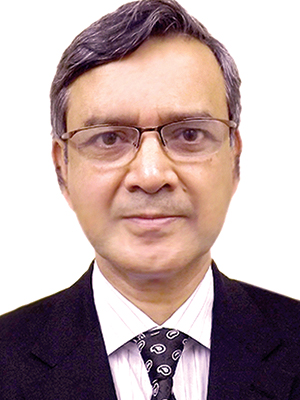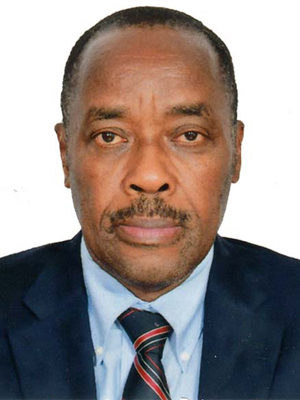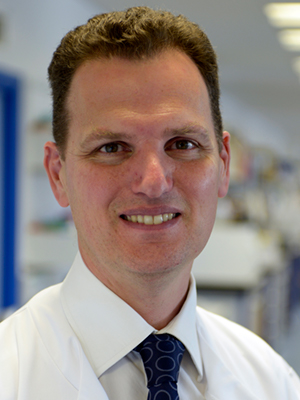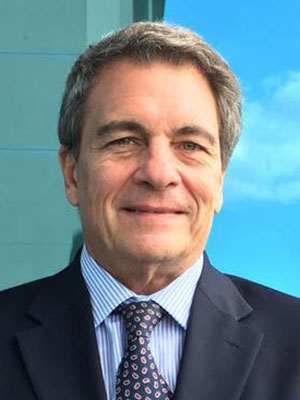For rheumatologists, fellows in training, and rheumatology professionals from around the world, the ACR/ARP Annual Meeting offers an invaluable opportunity to connect with the global community of rheumatology professionals and thought leaders.
ACR Daily News invited representatives from four of the world’s largest international rheumatology societies — Asia Pacific League of Associations for Rheumatology (APLAR), African League of Associations for Rheumatology (AFLAR), European League Against Rheumatism (EULAR), and Pan-American League of Associations for Rheumatology (PANLAR) — to share their thoughts on the benefits and educational opportunities for international rheumatology professionals attending the Annual Meeting and talk about each of the society-sponsored sessions.
APLAR

“The ACR/ARP Annual Meeting is a great place to keep abreast of the latest advances and information you can take back to your patient care practice,” said APLAR President Syed Atiqul Haq, MD, FRCP, FCPS, Professor in the Department of Rheumatology at Bangabandhu Sheikh Mujib Medical University in Dhaka, Bangladesh. “It’s a great opportunity to attend sessions on basic sciences, get treatment updates and recommendations, and build relationships with rheumatologists from different countries.”
Dr. Haq recommends a special APLAR session, Vasculitis Syndromes: Where East and West Converge, which will take place Tuesday, Nov. 12, from 9:00 – 10:00 AM.
“This session will feature talks on Takayasu’s arteritis, Kawasaki disease and Behcet’s disease from speakers with large bodies of research and practice experience in these conditions,” Dr. Haq said. “Although they occur in all parts of the globe, these conditions are much more common in Asia-Pacific, and APLAR is delighted to provide the opportunity for our colleagues to present their research data at such a prestigious global forum.”
AFLAR

“For me, the major reason and benefit for attending this meeting is the opportunity to update my knowledge and skill on management of both common and rare rheumatologic diseases,” said AFLAR President Olufemi Adelowo, MD, FRCP, MACR, Professor of Medicine and Consultant Rheumatologist at Lagos State University Teaching Hospital and Lagos University Teaching Hospital in Nigeria.
“Knowledge of the burden of rheumatologic diseases in African countries is mostly low, yet these conditions exist, and the (ACR/ARP Annual) Meeting offers a great opportunity for my colleagues and I to interact with other rheumatologists to raise awareness on rheumatic and musculoskeletal diseases in African countries while also seeking opportunities for collaborative research works,” Dr. Adelowo said.
One session he hopes will attract attendees from all parts of the globe is this year’s AFLAR session, A New Dawn for African Rheumatology, which will be held on Monday, Nov. 11, from 8:30 – 10:00 AM. A panel of rheumatology experts from across Africa will focus on the current, pressing impact of various diseases faced by patient populations in particular geographic regions. Scheduled topics include the emerging challenge of osteoporosis in sub-Saharan Africa, musculoskeletal complications of sickle cell disease in Nigeria, spondyloarthritis in North Africa, and the social challenges of living with systemic lupus erythematosus in sub-Saharan Africa, specifically South Africa.
For his colleagues traveling from Africa, with so much to do and so many sessions to choose from at the meeting, Dr. Adelowo recommends arriving a day or two early to study the meeting program, get to know the convention center and the city, and recover from jet lag.
EULAR

“The ACR/ARP Annual Meeting provides a great opportunity to meet fellow rheumatologists and to be made aware of the new data that are critical to inform the care of our patients,” said EULAR President Iain B. McInnes, MD, PhD, FRCP, FRSE, Muirhead Professor of Medicine and Director of the Institute of Infection, Immunity and Inflammation at the University of Glasgow. “Having contemporary information to guide our practice is vital if we are to optimize the care of our patients — attending the ACR meeting is a way of ensuring that we have the most up-to-date knowledge upon which we rely in our clinics.”
This year’s EULAR session, The Road to Remission Is Long & Bumpy, But Worth It in The End, on Sunday, Nov. 10, from 2:30 – 4:00 PM, will bring together relevant data concerning the therapeutics, strategies, and imaging modalities that are now available to optimize the likelihood of remission in patients.
“Achieving long-lasting, deep remission is something of a ‘holy grail’ for rheumatologists and especially for our patients,” Dr. McInnes said. “It remains a challenge to deliver remission for a substantial proportion of our patients; however, we are enjoying ever greater success in this area, achieved through improved strategies of care and the application of an exciting armamentarium of medicines across a range of modes of action.”
Another session Dr. McInnes said attendees won’t want to miss is the ARP-EULAR HP Collaborative Session, Exercise, the “Wonder Drug,” on Monday, Nov. 11, from 2:30 – 4:00 PM. This session will explore the evidence supporting exercise in patients with rheumatic musculoskeletal disease, address exercises that will provide maximum benefit, and provide perspectives about motivation to exercise.
PANLAR

“The ACR/ARP Annual Meeting is a can’t-miss opportunity to meet with colleges from all around the world working in your field and an unparalleled opportunity to get updates and hear from those who are actually doing the research,” said PANLAR President Enrique Soriano, MD, MSC, Professor and Director of the Postgraduate Department at Instituto Universitario and Chief of Rheumatology at Hospital Italiano de Buenos Aires in Argentina.
“It is very useful for PANLAR members to attend other countries’ meetings, and ACR is special, as it is the major meeting in the Americas. It is a great opportunity for study groups to get together and plan and a chance to network with groups from other continents and other leagues,” Dr. Soriano said. “Also, it is an unbeatable opportunity to find out where research is going and to get innovative ideas.”
This year’s PANLAR session, Rheumatology Workforce in Pan American Countries: Where We Are, and What to Do About It, takes place on Monday, Nov. 11, from 2:30 – 4:00 PM.
“In this session, we will explore the real situation of the workforce in PANLAR countries, and the training opportunities that are available in different countries of the region,” Dr. Soriano said. “We will also talk about different solutions that have been implemented in different countries to solve this shortage of rheumatologists.”
